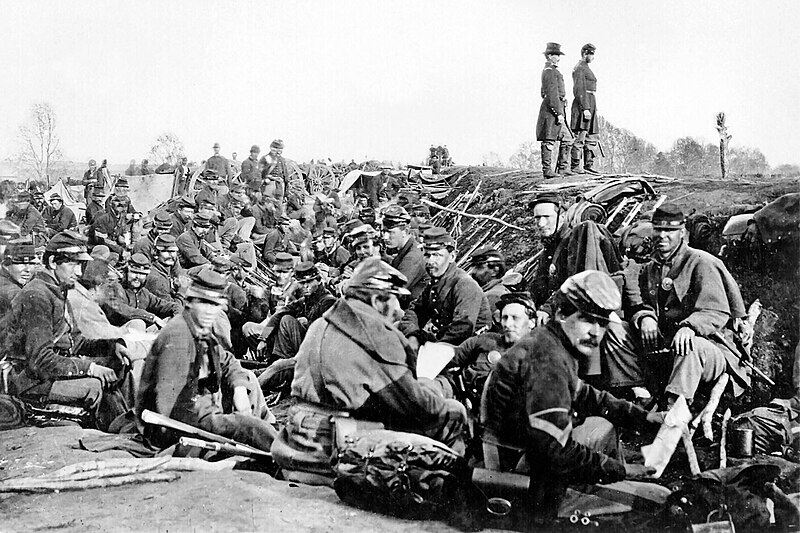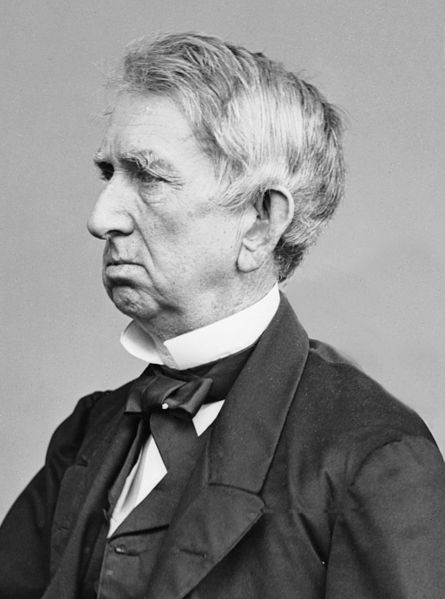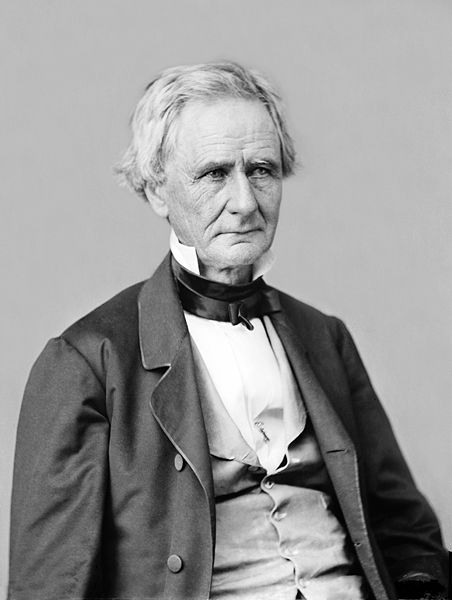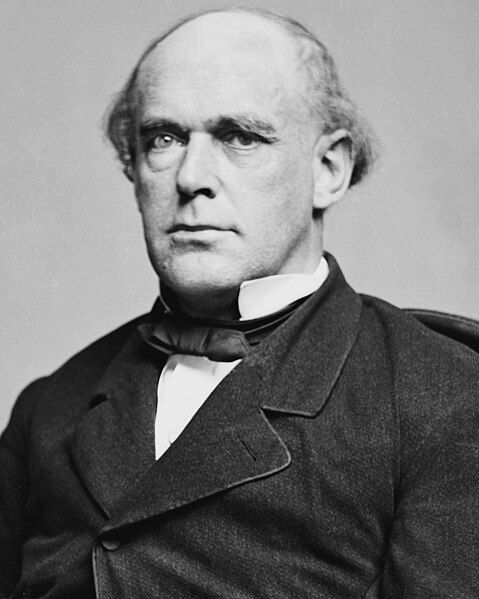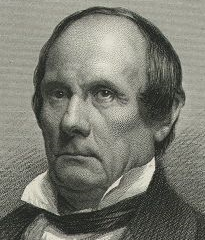Election of 1860: A Nation That Cannot Stand
Republican Party
Platform: Abolition of slavery. Re-unite the nation through war. Promote colonization through the Homestead Act
John McLean, Age 75, President. Former Justice of the Supreme Court. Wants a swift victory over the South, and a fair Reconstruction. Wants to declare war on Britain, Netherlands, and Ethiopia, as he states he has prepared the nation for it.
William H. Seward, Age 59, New York Representative and Senator. Traveled Europe and the Middle East, and wants to build good relations with foreign nations to prevent foreign intervention. Wants to treat the South's secession as treason, and punish them. Would fully support any other Republican candidate, so long as they unite the nation. Against war with Britain, as it would destroy American relations with the world.
Simon Cameron, Age 61, Pennsylvania entrepreneur and senator. Wants to lower scientific rate and focus on industry and economy stimulus. Wants to re-enact Jackson-era Spoils system to give the Union more authority to win the Civil War. Wants to focus on warring Britain, Netherlands, and Ethiopia over resources, and thus states that Canada is a worthless cause to fight over.
Abraham Lincoln, Age 51, Illinois Representative. Articulate speaker. Wants to balance compromise, punishment, and compensation to the South and re-unite the nation. Wants to write into the constitution the abolishment of slavery. Supports war with Britain, Netherlands, and Ethiopia.
Salmon P. Chase, Age 52, Ohio Senator and Chief Justice. Authored the "slave power conspiracy", which stated the South had intention to seize the government to ensure slavery would never be abolished. Former Democrat (as post Republicans were former Whigs). Opposes too much resource trading with foreign nations, as it could lead to diplomatic strain. Supports war with Britain.
Edward Bates, Age 67, Missouri Lawyer. Wants to follow Henry Clay's footsteps. Disagrees with blacks being able to join the army, and instead proposes that freed slaves in the South should be returned to American colonies in Africa. Wants to focus on war over Africa, as the freed slaves might join the Dutch or Ethiopian side of the war.
Benjamin Wade, Age 60, Ohio Senator. Wants to fight for woman's suffrage, trade union rights, and total equality (not just emancipation) of African-Americans. Critical of monopolies. Critical of compromise. Does not support war with Britain.
Union Party
Gerrit Smith, Age 63, New York politician, philanthropist, and abolitionist. Wants to settle the war, as he sees no way for there to be compromise. After replacing Southern states with those who would listen to the federal government, wants to compensate to both the slavers and the slaves. Supports woman's suffrage. Sees all men and women as brothers and sisters of the same family. Doesn't want Confederate figures tried for treason or war crimes, instead choosing to forgive them. Supports war with Britain, Netherlands, but not Ethiopia, as he believes that American colonies are more humane than British and Dutch. Ethiopians have a right to their homeland, however.
Democratic Party
Platform: Attempt to re-unite the Union through compromise. Popular Sovereignty. Support colonization.
Stephen A. Douglas, Age 47, Illinois Senator and Representative. After re-uniting the nation, wants the South to re-vote on slavery. Says that blacks were not ensured by the constitution to have rights, but urges the South to treat them more humane. Says we need more time to prepare for war with Britain.
James Guthrie, Age 68, Kentucky Senator and Secretary of the Treasury. Says that the North should just defend against Southern attacks, and the economy will decide that they should rejoin the Union. Wants to wait for the war with Britain, Netherlands, and Ethiopia until the colonies are better prepared.
Andrew Johnson, Age 52, Tennessee Governor and Senator. Wants to work with both parties to end partisanship and focus on the Civil War. Would refuse anything his party asks for him to support the president's authority. Does not think the constitution gives African-Americans rights. Declares that the South should have just vetoed McLean's policies. Only senator to remain in the Union after his state seceded. Wants to focus on war with Britain, Ethiopia, and Netherlands entirely and fight supremacy over their colonies.
Constitution Party
Edward Everett, Age 66, Massachussets Governor, Representative, Senator, Harvard President, Secretary of State, and Ambassador to Britain. Wants to settle the Civil War, but says the constitution does not need rewriting as the Bible specifically states "Slaves obey your master". Wants to avoid war with Britain and focus on national unity and improvement of the colonies. Wants to repeal the Indian Removal Act. Opposes the slave trade, as it is kidnapping. Wants to re-enact alliances to bring down monarchies, and work on giving Peru more influence in Latin America. Wants to ally with Germany, as their ideals are closer to George Washington's than France's currently is. Wants to work to topple monarchies around the world.
Campaign News:
In a completely surprising turn of events, the relatively obscure Union Party nominated
Gerrit Smith. Smith, stating his health has been so poor he hasn't traveled since 1858, accepted the nomination but did not run. He donated 50 dollars to help for the printing of the ballots. The party swept through the states, mainly spreading through organized events and word-of-mouth.
President McLean got no votes from his own party's convention. He returned home, and did a few months later. Candidate Abraham Lincoln took the Republican Party, being chosen as the most moderate and accessible. The Democratic Party took humiliating losses in this election.
Let us hope Smith can solve the nation's Civil War and lead the nation to safety and stability.
Republican Party 6
• Lincoln 3
• Seward 1
• Cameron 1
• Wade 1
Union Party 8
• Smith 8
Democratic Party 1
• Douglas 1
• Guthrie 0
• Johnson 0
Constitution Party 0
• Everett 0








